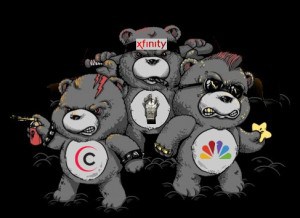
The Don’t Care Bears
Talk is cheap but your cable bill isn’t.
For the ninth year in a row, Comcast CEO Brian Roberts this week promised a transformational improvement in Comcast’s customer service experience. Comcast has routinely been rated one of America’s worst companies, often achieving the dubious distinction of scoring number one. Customers don’t just dislike Comcast, they loathe Comcast. Its customer service and support forums are infested with angergrams from hostile customers. The Better Business Bureau has a hard time keeping up with the avalanche of complaints. The company’s reputation is worse than the IRS.
For beleaguered customer service agents, it’s right back at ‘ya.
Almost a year after Roberts made his first solemn commitment to address his company’s sordid reputation with customers back in 2006, this unsolicited letter arrived at a website critical of the company’s reputation from one of the customer service agents on the front line:
We honestly do go out of our way to make things better for you and the main thing we are taught is that [the] customer comes first.
So what if you had an installation that didn’t go well? So what if you came across a rep who [is] miserable? You’ll find that anywhere you go. Hell, you probably act the same way at work.
God forbid someone forget to leave notes in the account. No one [is] perfect, but usually we do have everything documented and we’ll still give you the benefit of the doubt. You don’t know how many times a day I deal with, “if you don’t do this or if you don’t do that” (as if what we have given you isn’t enough) “I’m going somewhere else” Well good, you know what, go and when that company does the same thing I hope you feel stupid when you come running back to [us]. You all should be ashamed of yourselves.
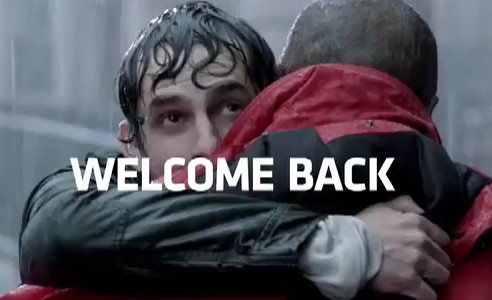
This time it will be different than the last nine times, I swear.
That example is indicative of the same problem Comcast experiences today. A customer service experience is only as good as the management’s dictated customer service policies allow. If the higher-ups insist on overbooking installation and service calls to save money, calls will be missed. If an extended outage is required before customers are entitled to a service credit, it’s the customer service representative that has to deliver the bad news. If a Comcast employee’s job or salary is dependent on numbers, numbers, numbers, and adult supervision is lacking, nobody should be surprised when Lord of the Flies-like instincts emerge. The customer is number two.
Comcast’s announcement that it will hire more than 5,500 new customer service agents over the next five years doesn’t solve the problem. Without major philosophical changes about the way Comcast does business, it only creates a larger pool of abusive customer service agents.
Comcast’s goal to always be on time for customer appointments (by the third quarter of this year) was also promised years before. A commitment to invest in technology and training to deliver excellent service in 2015 makes one wonder what Comcast was investing in before this. A commitment to simplify billing does nothing to correct Comcast’s infamously inaccurate billing. Better consistency and transparency about sneaky charges and deceptive promotions are unlikely to do much for Comcast’s reputation with customers.
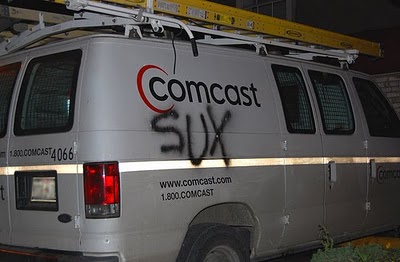
Another satisfied customer
Comcast’s improvement plan also includes the renovation of hundreds of cable stores across the country, but says nothing about sufficiently staffing them to prevent a line stretching out the door. Development of new technologies to enable people to interact with Comcast how and when they want may prove less compelling than developing new policies flexible enough to deliver solutions that satisfy those customers.
“This transformation is about shifting our mindset to be completely focused on the customer. It’s about respecting their time, being more proactive, doing what’s right, and never being satisfied with good enough,” said Neil Smit, president and CEO, Comcast Cable. “We’re on a mission and everyone is committed to making this happen.”
Which makes Comcast customers everywhere ponder what Mr. Smit and Mr. Roberts were doing the last nine years they were promising massive changes in the customer service experience. Fool me once, shame on you. Fool me twice, shame on me. Few Comcast customers will believe the promises broken by the same management team so many times before until they see them in action.
After all, broken promises from Comcast are like snow in Buffalo. You learn to expect it.


 Subscribe
Subscribe
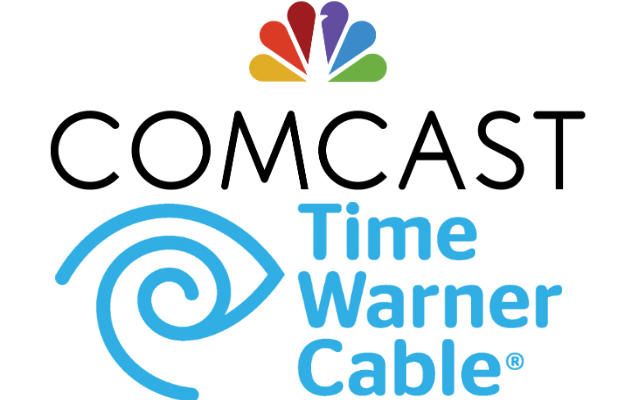 Comcast customer service horror stories reached a level unparalleled by other cable companies when a Comcast
Comcast customer service horror stories reached a level unparalleled by other cable companies when a Comcast  N.Y. State Assembly Leader Joe Morelle: “The combination of Comcast and Time Warner Cable will create a world-class communications, media and technology company to help meet the increasing consumer demand for advanced digital services on multiple devices in homes, workplaces and on-the-go.”
N.Y. State Assembly Leader Joe Morelle: “The combination of Comcast and Time Warner Cable will create a world-class communications, media and technology company to help meet the increasing consumer demand for advanced digital services on multiple devices in homes, workplaces and on-the-go.” David Cohen, executive vice-president, Comcast: “The combination of Comcast and TWC will create a world-class communications, media, and technology company to help meet the insatiable consumer demand for advanced digital services on multiple devices in homes, workplaces, and on-the-go.”
David Cohen, executive vice-president, Comcast: “The combination of Comcast and TWC will create a world-class communications, media, and technology company to help meet the insatiable consumer demand for advanced digital services on multiple devices in homes, workplaces, and on-the-go.”

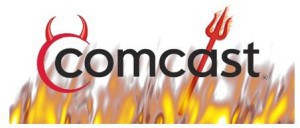 No.
No.
 After Comcast customer Conal O’Rourke spent more than a year trying to get the cable company to stop overbilling him, Comcast allegedly got their revenge
After Comcast customer Conal O’Rourke spent more than a year trying to get the cable company to stop overbilling him, Comcast allegedly got their revenge 